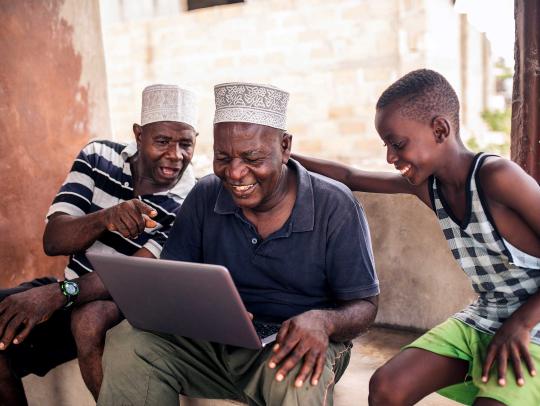Microsoft, SES and Nokia demonstrate satellite and 5G integration for Australian Defence remote access to Azure cloud services

A few weeks ago, SES, Microsoft and Nokia joined forces to solve a key challenge that governments around the world face constantly – the need for reliable and secure connectivity that will enable the delivery of large volume of data back to the headquarters. Microsoft Azure Space Lead Lynn McDonald tells you how.
As Defence organisations continue to respond to new threats and changing strategic circumstances, it’s crucial that they have access to the best possible technology for modernised military capabilities and high-performance operations.
One of the biggest challenges is the ability to access and share increasingly large volumes of data from remote locations quickly and securely, and then analyse the data to inform real-time decision-making.
To help meet these demanding requirements, Microsoft, SES, and Nokia have successfully demonstrated secure access to the Azure cloud platform over private 5G and satellite communication (SATCOM) networks, enabling the use of cloud services anytime and anywhere, including remote and austere environments.
Through the integration of SATCOM, 5G, and cloud computing, the demonstration established a reference architecture to deliver remote access to enterprise systems, remote access to data, and the ability to conduct analysis simultaneously in the field and in the hyper-scale cloud. For this demonstration, military vehicle data was streamed over private 5G, viewed and analysed in the field, and then delivered in real-time to an enterprise maintenance system in Azure over SATCOM.
Remote access
Nokia established a secure, private 5G network using the Nokia Digital Automation Cloud solution. This streamlined, plug-and-play connectivity provides rapid access to ultra-low latency, high-capacity networking.
During the demonstration, users accessed an SAP maintenance environment hosted in Microsoft Azure, using laptops connected to the private 5G network. This proof of concept shows the ability for Defence personnel in the field to access and update an enterprise resource planning (ERP) solution without waiting to return to a primary facility or base. Data from vehicles can also be accessed and analysed in the field, with results synced to the ERP platform.
Through real-time ERP updates in the field, logisticians and commanders located at headquarter sites can make decisions based on the most up-to-date tactical data on vehicle fleets.
Vehicle data transfer
Both raw and processed data can be sent from vehicles in the field to enterprise systems over SATCOM when the operational situation allows, increasing commanders’ awareness of deployed assets. Improved access to data also opens opportunities for automation and optimisation of back-end processes, such as predictive maintenance, stock management, fleet management and operational budget forecasting.
For the demonstration, SES – an Azure Orbital Ground Station as a Service partner - showcased the potential for high-volume data transfers by accessing its O3b satellite constellation via transportable terminal antennas. Orbiting at approximately 8,000km above Earth’s surface in Medium Earth Orbit (MEO), the O3b system delivers low latency, high-performance connectivity. SES’s upcoming second-generation MEO system – O3b mPOWER – represents a step change in capabilities for satellite-based networking. With unrivalled scale, the system can provision throughputs up to multiple gigabits per second per service, providing resilient cloud and edge connectivity. In this demonstration, download and upload speeds reached 348 Mbps and 67 Mbps respectively. With O3b mPOWER, the bandwidth can be scaled from 100 Mbps to a Gigabit depending on the requirements of the mission.
Vehicle data analysis
Azure services can be used to display live position and analytical data on a dashboard in the field. During the demonstration, the Microsoft Azure Stack Edge Mini R – an ultra-portable, rugged edge computing device – was used for computing and analysis onsite, enabling advanced cloud analytics and visualisation in both connected and disconnected environments.
Using 5G and SATCOM connectivity, data analysis can also take place in the Azure hyper-scale cloud compute platform. For instance, predictive maintenance analysis could be used to automatically send alerts and notifications and feed relevant data to ERP maintenance modules, which would enable maintenance orders to be scheduled, stock inventory to be checked and personnel requirements to be automated.
Remaining smart and connected
By unlocking the power of SATCOM, 5G and cloud computing, Defence organisations can remain connected in remote locations, share data quickly and securely to enhance strategic awareness, and perform deep analysis of data to improve decision-making.
The reference architecture established by this Defence demonstration is readily transferred to other sectors where remote connectivity and data analysis is required, including agriculture, healthcare, mining and resources, transport, and logistics.
This article was also published on Microsoft.




